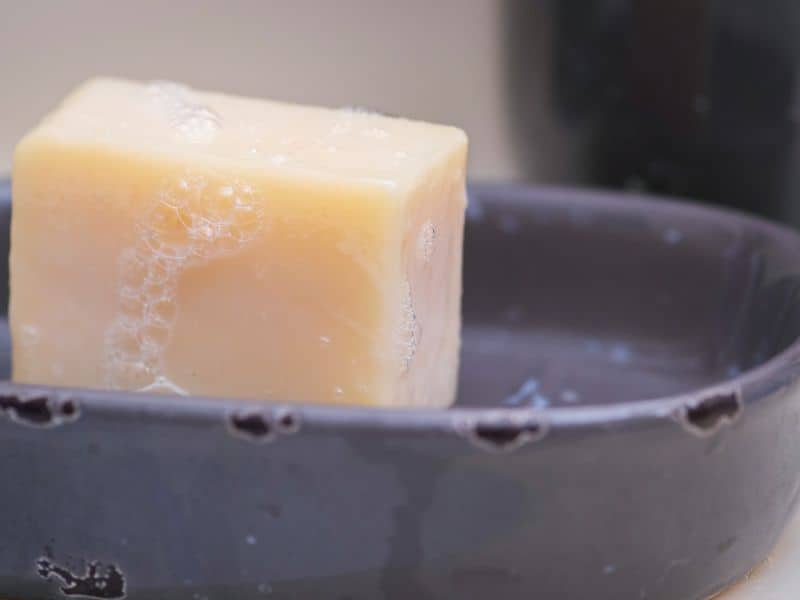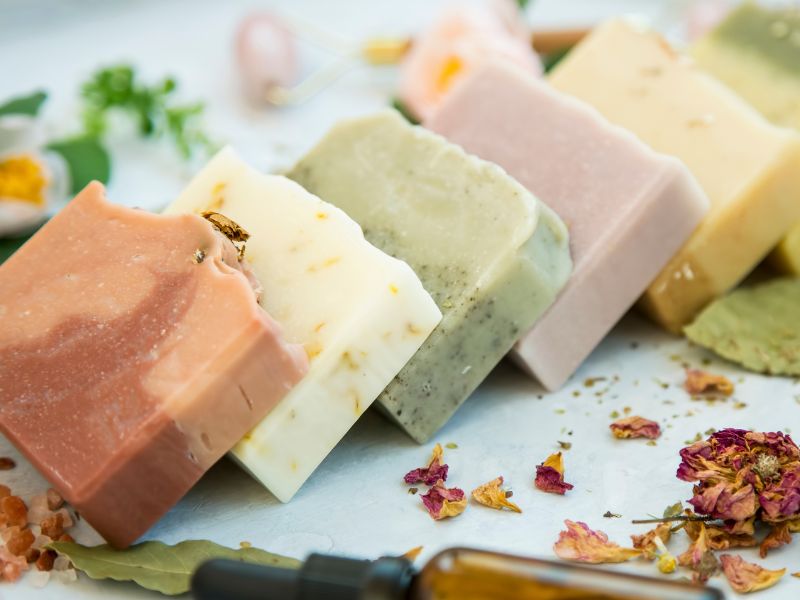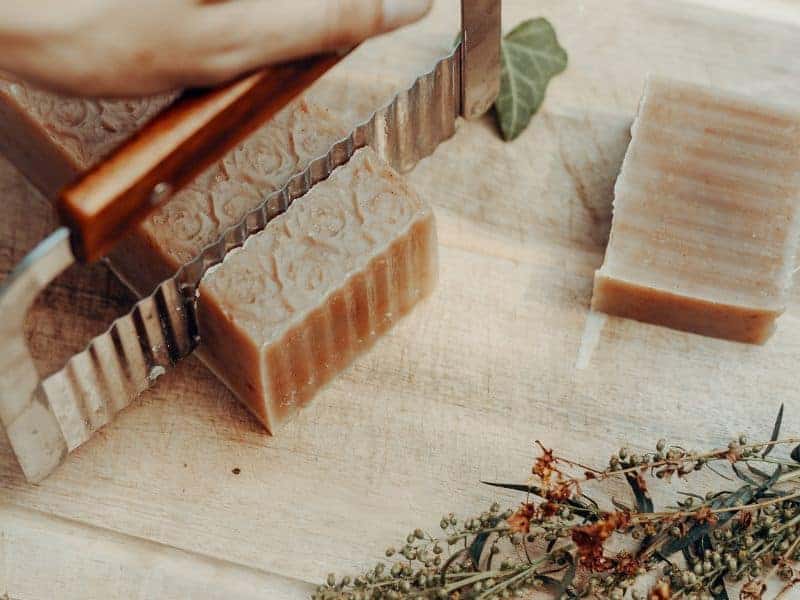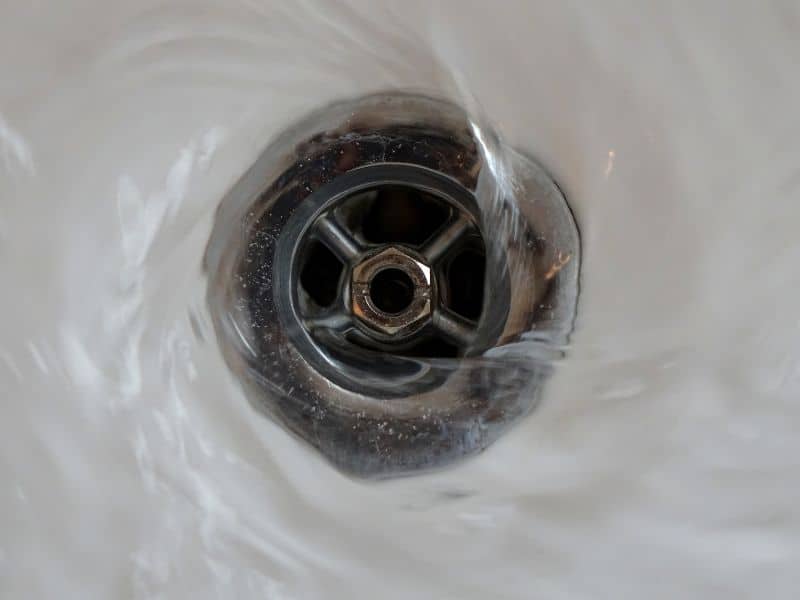Have you ever wondered if soap can grow mold? It’s a common concern among people who use natural soaps, especially those that contain oils and other ingredients that are prone to spoiling. It doesn’t happen as often as you might think. We are going to discuss mold growth in soap, how to prevent it from happening, and some tips on storage and usage.
Although it is a rare occurrence, soap can grow mold. Soap can grow mold if it is exposed to high humidity, moisture, or air. Mold spores can also contaminate the soap during the manufacturing process or storage. Natural soaps are more susceptible to mold growth.
You can help prevent mold growth on soap by taking a few steps: keep it dry; store it in an airtight container; use natural preservatives (such as rosemary or grapefruit seed extract); and by not letting your soap lay in standing water. Let’s look at some other aspects of this issue.
The Possibility of Mold Growth in Soap
Soap is a household item that is generally thought of as being clean and hygienic. However, there is a possibility that soap can grow mold if it is not stored or used correctly.
Conditions That Can Lead to Mold Growth in Soap
Humidity is one of the main factors that can lead to mold growth in soap. When soap is exposed to high levels of humidity, it can absorb moisture from the air, which can create an ideal environment for mold spores to grow.
Additionally, when soap is stored in a damp or humid location, such as a bathroom or basement, it can become more susceptible to mold growth.
Exposure to air can also contribute to mold growth in soap. When soap is left exposed to air, it can dry out and develop cracks or fissures, which can provide a breeding ground for mold spores.
How Mold Spores Can Contaminate Soap
Mold spores are present in the air and can contaminate soap during the manufacturing process or storage. If soap is not stored in a dry and cool location, mold spores can settle on its surface and start to grow.
Additionally, if soap is not made with the correct ingredients or handled correctly during the manufacturing process, it can become contaminated with mold spores.
It is possible for soap to grow mold if it is not stored or used correctly. To prevent mold growth in soap, it is important to store it in a cool and dry location and to avoid exposing it to high levels of humidity or air.
Additionally, it is important to make sure that soap is made with the correct ingredients and is handled correctly during the manufacturing process to prevent contamination with mold spores.
Factors that Influence Mold Growth in Soap
Although soap is made with antimicrobial ingredients and is naturally resistant to mold growth, it is still possible for mold to grow under certain conditions. Understanding these conditions and the factors that influence mold growth can help you prevent it from happening.
Here are some factors that can influence mold growth in soap:
The pH level of the soap
The pH level of soap can affect its resistance to mold growth. Soap with a pH level below 9 is less likely to grow mold. High pH levels create an alkaline environment, which is inhospitable to mold growth.
The use of natural preservatives
Some natural preservatives, such as grapefruit seed extract, can help prevent mold growth in soap. They are effective in inhibiting the growth of mold and other microorganisms. However, it is important to use them at the recommended dosage, as overuse can affect the quality of the soap.
The storage conditions of the soap
Mold thrives in moist and humid environments. Therefore, storing soap in a dry and cool place can help prevent mold growth. Avoid keeping soap in airtight containers, as this can trap moisture and promote mold growth.
Understanding the factors that influence mold growth in soap can help you prevent it from happening. By maintaining a proper pH level, using natural preservatives, and storing soap in a dry and cool place, you can ensure that your soap remains mold-free.
How to Prevent Mold Growth In Soap
It requires care and attention to avoid unwanted results such as mold growth in the soap. Here are some tips to help prevent mold growth in your soap:
Proper Storage of Soap
Proper storage of soap is essential to prevent mold growth. Keep your soap in a dry, cool, and well-ventilated place, away from moisture and air. Avoid storing soap in humid or damp areas, as this can lead to mold growth.
Using a Preservative
Using a natural preservative, such as grapefruit seed extract or vitamin E oil, can prevent mold growth in soap. Add the preservative during the soap making process to ensure that it is evenly distributed throughout the soap.
Monitoring the pH Level of the Soap
The pH level of the soap can affect its ability to resist mold growth. Soap with a pH level of 8.5 or higher is less likely to support mold growth. Test the pH level of the soap using a pH testing strip and adjust it if necessary.
Ensuring Good Hygiene Practices
Good hygiene practices are crucial during the soap making process to prevent contamination of the soap. Wear gloves, a mask, and protective clothing to avoid contact with bacteria or mold spores. Clean and sanitize all equipment and work surfaces before and after use.
Following these tips and you can prevent mold growth in your soap and ensure that your soap remains safe and enjoyable to use.
Frequently Asked Questions
You can prevent mold growth in soap by proper storage to minimize exposure to moisture and air, using preservatives, monitoring pH levels, and ensuring good hygiene practices during the soap making process.
Some natural preservatives that can be used in soap making include grapefruit seed extract, rosemary extract, and vitamin E.
In most cases, moldy soap should not be salvaged as it can cause skin irritation and infections.
Yes, soap with a high pH level can be more prone to mold growth.
You can tell if your soap has mold if you see black or green spots on it or if it has an unusual odor.
Moldy soap should be disposed of safely by wrapping it in a plastic bag and throwing it in the trash. Do not try to salvage or use moldy soap.
Conclusion
In conclusion, mold can grow on soap if the environment and conditions are conducive to it. To prevent mold growth in soap, store it in a dry and cool place, use natural preservatives, monitor pH levels, and practice good hygiene during the soap making process.
If your soap has become moldy, be sure to dispose of it safely. With a little bit of care, you can ensure that your soap remains mold-free and safe to use.






